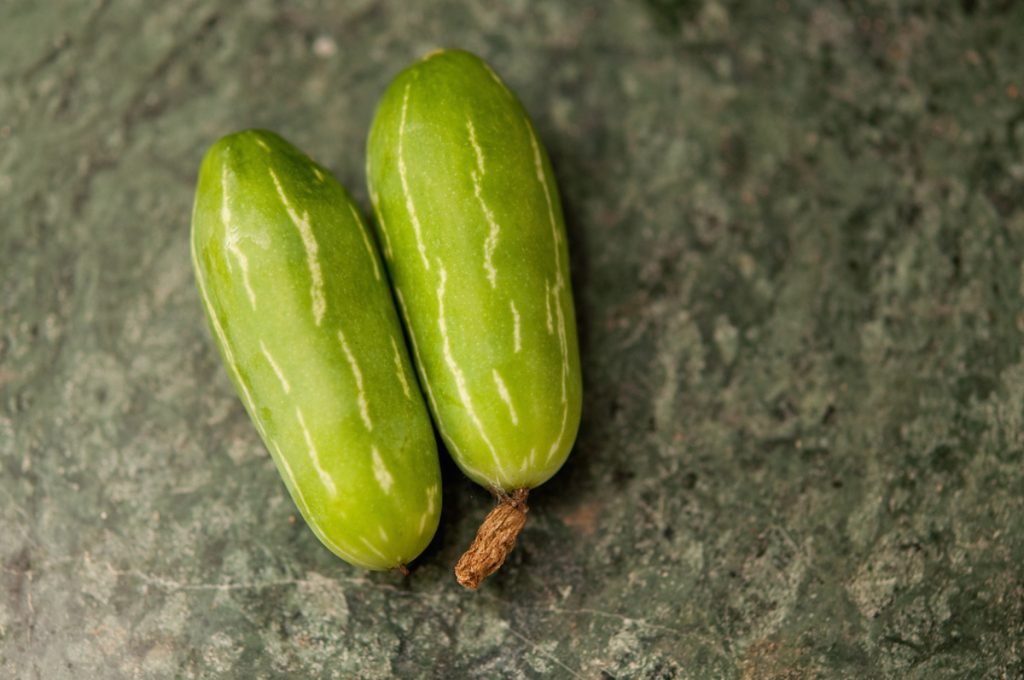Ivy gound, scientifically known as Coccinia grandis, is a tropical plant that belongs to the Cucurbitaceae family, which also includes cucumbers, melons, and squash. It is commonly referred to as scarlet gourd, tindora, and Kowai fruit, depending on the region. For centuries, traditional medicine has recognized the immense benefits of ivy gourd, particularly in managing diabetes and promoting overall well-being.
Origin and Traditional Use
This fruit is commonly used for culinary preparations in countries like India, Thailand, and the Philippines. It is often stir-fried, curried, pickled, or used in soups and stews. The young shoots and leaves are also consumed as a leafy vegetable in some cultures, adding nutritional value to the diet. Ivy gourd is believed to have originated in India and gradually spread to neighboring countries like Thailand, Myanmar, and Sri Lanka. Traditionally, various parts of the plant, including its leaves, stems, and fruit, have been used in Ayurvedic and traditional medicine to treat numerous ailments, such as fever, skin infections, respiratory issues, and digestive disorders.
Link Between Ivy Gourd and Diabetes
One of the most significant health benefits of Ivy gourd is its potential role in managing diabetes. Several studies suggest that this plant possesses anti-diabetic properties, which help regulate blood sugar levels naturally. The primary mechanisms through which Ivy Gourd aids in diabetes management include,

Regulating Blood Sugar Levels: Ivy gourd contains compounds such as triterpenoids, flavonoids, and alkaloids that may help improve insulin sensitivity and enhance glucose metabolism. Some studies have shown that consuming ivy gourd regularly can reduce postprandial blood sugar levels (the rise in blood sugar after meals), making it beneficial for people with type 2 diabetes.
Mimicking Insulin Action: Some bioactive compounds found in ivy gourd act like insulin by helping glucose enter the cells more efficiently. This can help reduce the reliance on external insulin injections or medications in some individuals.
Inhibiting Glucose Absorption: Research suggests that certain enzymes present in ivy gourd can slow down the absorption of sugar in the intestines, preventing sudden spikes in blood sugar levels after meals.
Enhancing Pancreatic Function: The pancreas plays a crucial role in insulin production. Ivy gourd has been found to support pancreatic health, ensuring that insulin production remains efficient and stable.
Health Benefits of Ivy Gourd
Rich in Antioxidants: Ivy gourd is packed with antioxidants such as beta-carotene, vitamin C, and flavonoids, which help combat oxidative stress. Oxidative stress is linked to various chronic diseases, including heart disease, cancer, and neurodegenerative conditions. Regular consumption of antioxidant-rich foods like ivy gourd can help neutralize harmful free radicals in the body.
Supports Digestive Health: It also helps maintain a balanced gut microbiome, which is essential for overall digestive health and immunity. The dietary fiber content in ivy gourd aids digestion and prevents constipation by promoting healthy bowel movements.
Weight Management: Fiber-rich foods help keep you full for longer, reducing overall calorie intake and preventing unnecessary snacking. Ivy gourd is low in calories and huge in fiber, an excellent choice for those trying to lose weight or maintain a healthy weight.
Boots immunity and promotes heart health: Its high vitamin C content, ivy gourd contributes to a stronger immune system by enhancing the production of white blood cells. A well-functioning immune system is essential for fighting infections and keeping illnesses at bay. The potassium and fiber content in ivy gourd support heart health by regulating blood pressure and reducing cholesterol levels. Potassium helps maintain proper heart function by balancing sodium levels, while fiber helps prevent the buildup of bad cholesterol (LDL) in the arteries.
Ivy Gourd into Your Diet
Ivy gourd is highly versatile and can be included in various dishes to enhance both flavor and nutrition. Here are some ways to incorporate it into your diet:
Stir-fried: Ivy gourd can be stir-fried with spices and herbs for a quick and healthy side dish. Curries and Stews: It is often added to vegetable curries and stews, especially in Indian and Thai cuisines. Pickles: Ivy gourd can be pickled with spices to create a tangy and flavorful condiment. Soups: Adding ivy gourd to soups can boost their nutritional content while enhancing their taste. Juices and Smoothies: Fresh ivy gourd juice is sometimes consumed for its potential health benefits, particularly for diabetes management.

Potential side effects
While ivy gourd offers numerous health benefits, it is essential to consume it in moderation. Some individuals may experience allergic reactions or mild digestive issues if they are not accustomed to consuming ivy gourd. People taking diabetes medications should consult a healthcare provider before adding ivy gourd to their diet, as it may enhance the effects of these medications and lead to excessively low blood sugar levels (hypoglycemia).
Summary of Ivy Gourd
It is always advisable to seek medical advice before making any significant dietary changes, especially for those with pre-existing health conditions. Ivy gourd is a powerful plant with immense health benefits, particularly for individuals dealing with diabetes. Its ability to regulate blood sugar levels, improve insulin sensitivity, and support pancreatic function makes it a promising natural remedy for diabetes management. Beyond its anti-diabetic properties, ivy gourd contributes to overall health by supporting digestion, boosting immunity, promoting heart health, and improving skin and bone health. By incorporating ivy gourd into a balanced diet, individuals can harness its numerous benefits and enjoy a healthier lifestyle.




